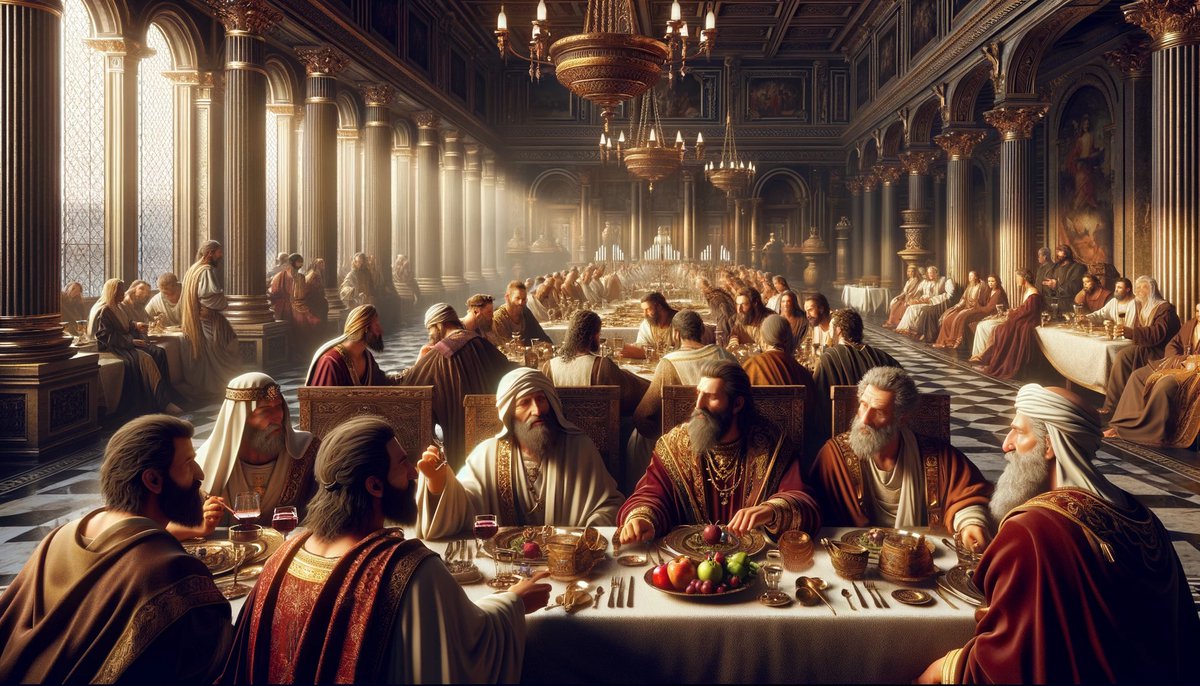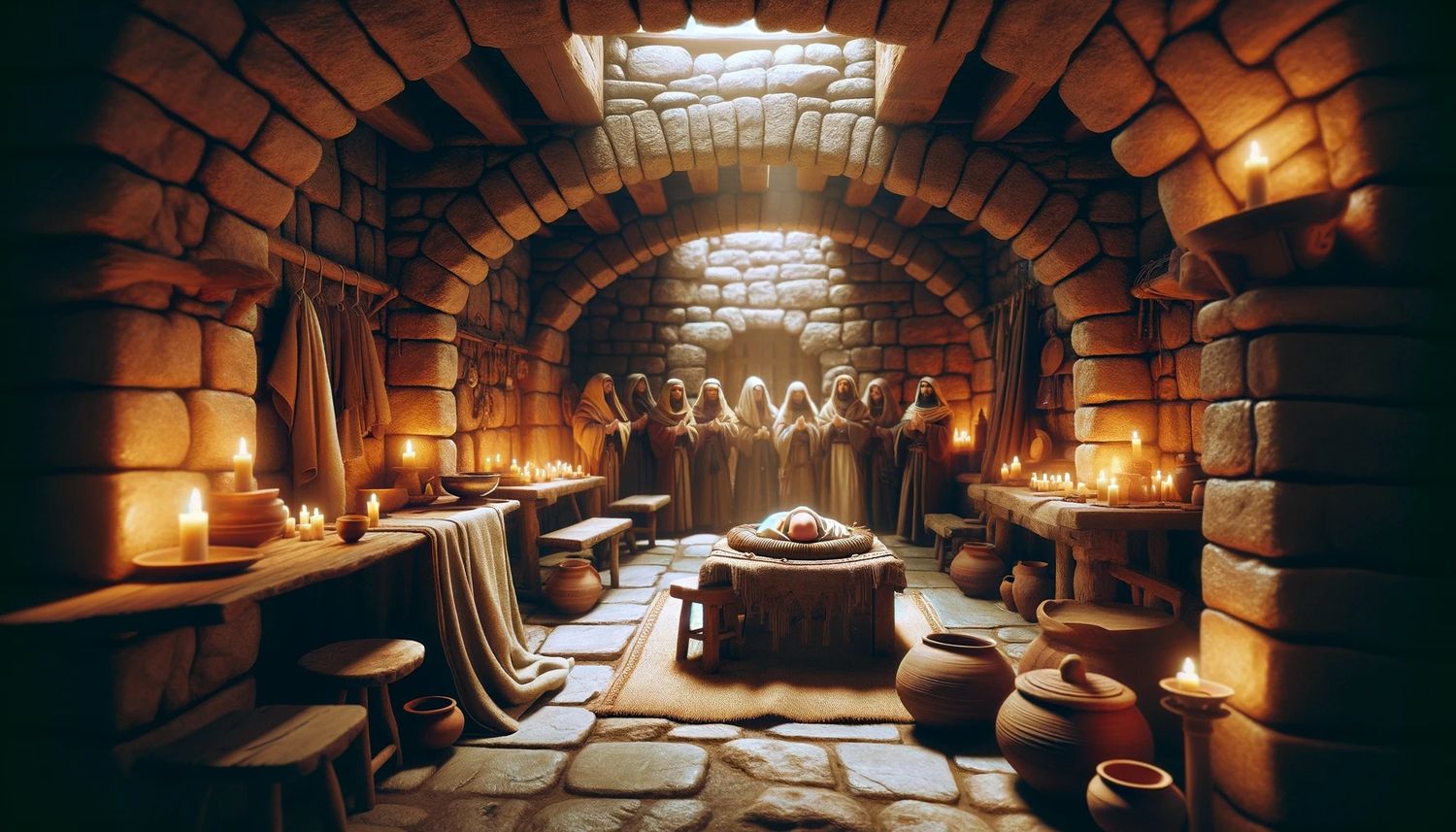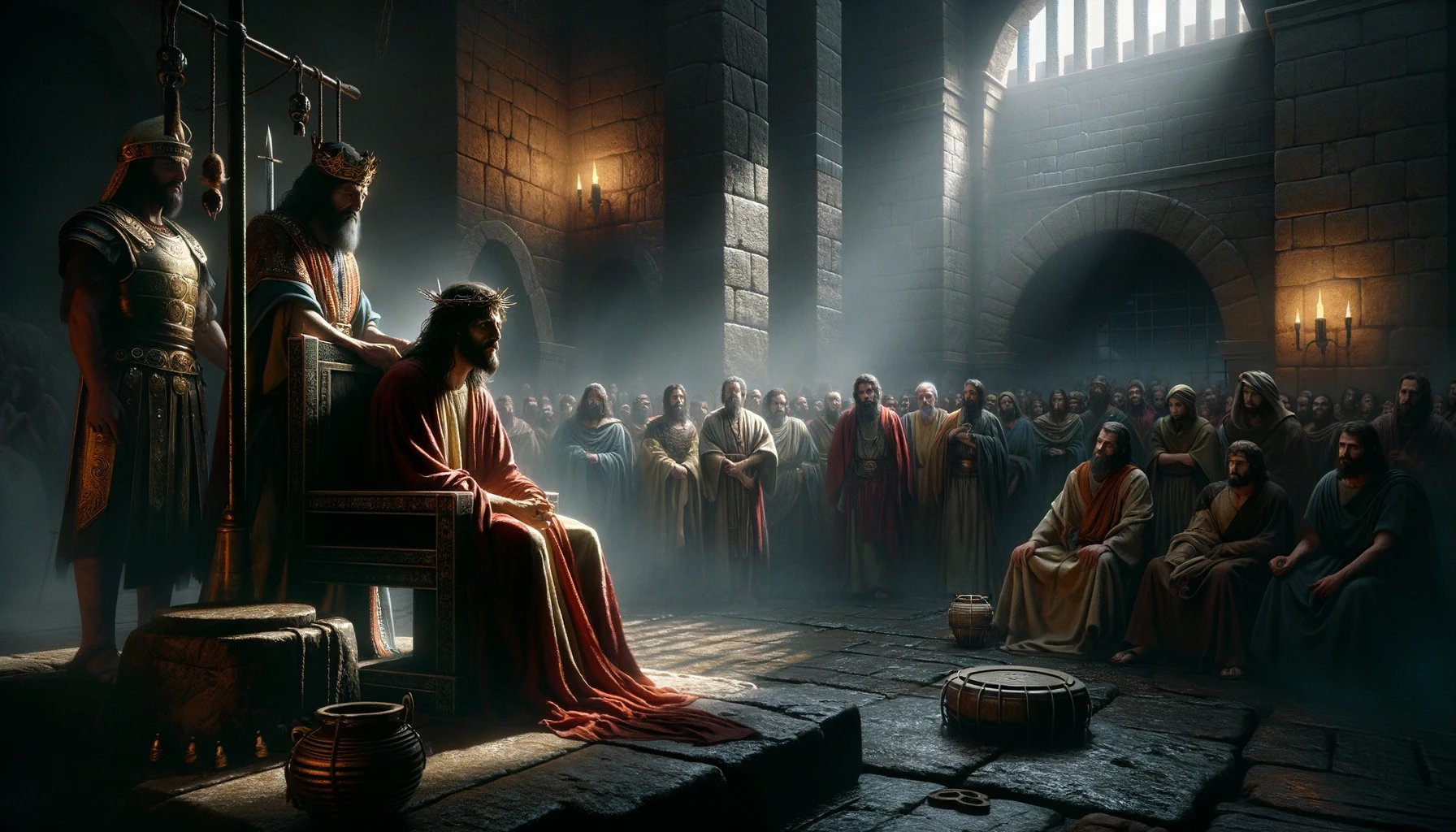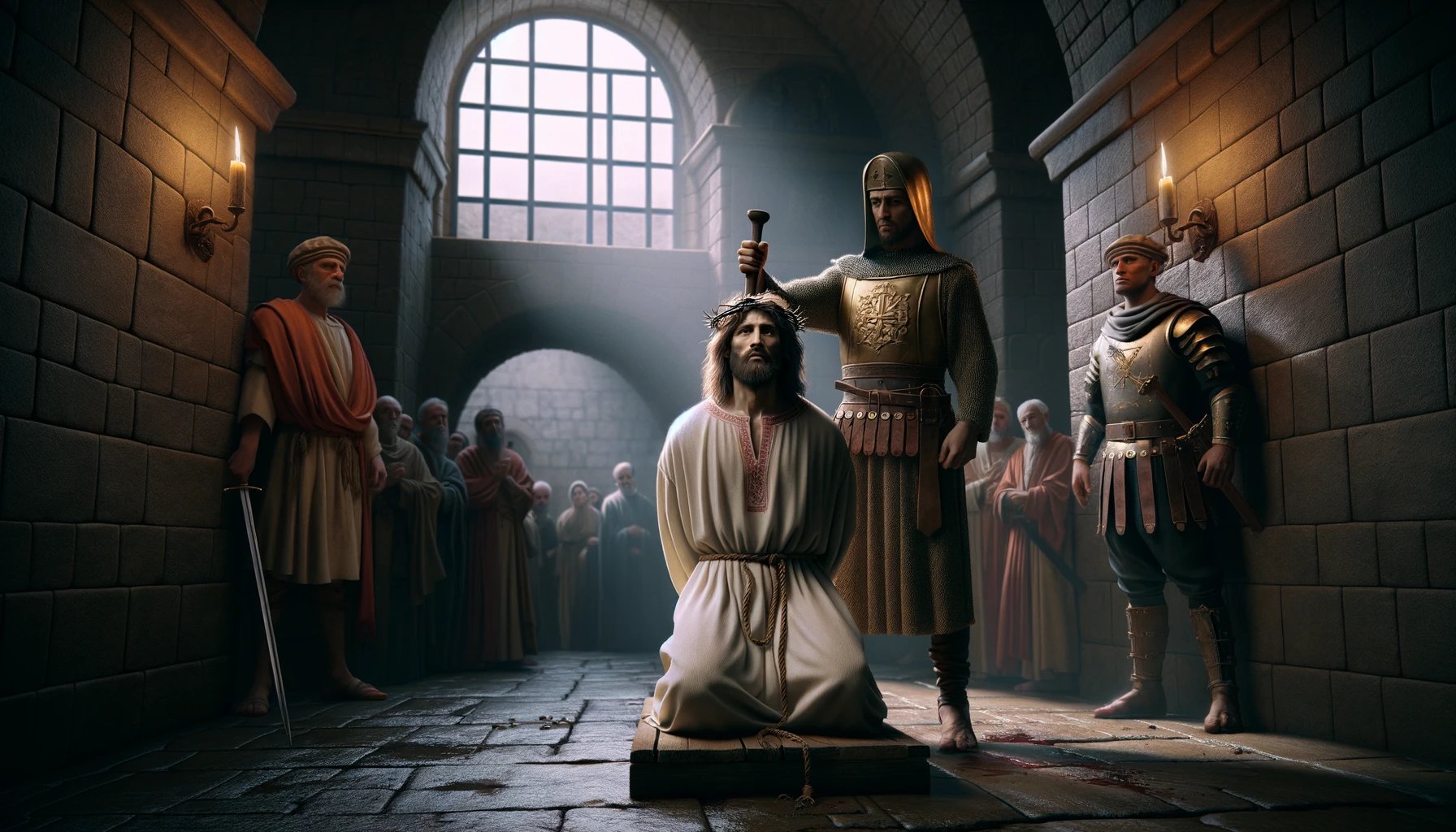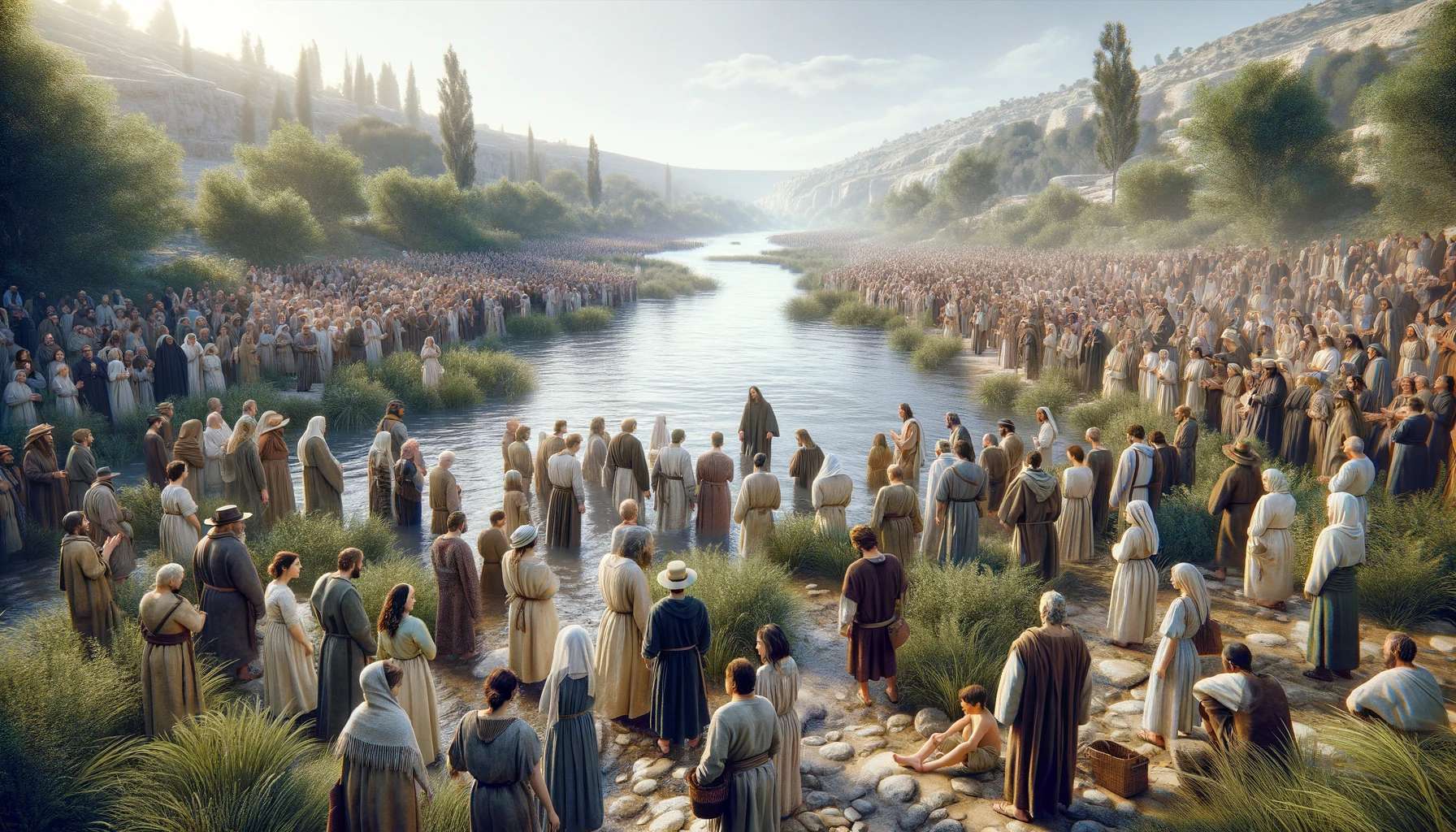Home>Theology and Spirituality>Why Did Herodias Want The Head Of John The Baptist


Theology and Spirituality
Why Did Herodias Want The Head Of John The Baptist
Published: February 23, 2024
Ericka Andersen, an editor at Christian.net, expertly merges digital strategy with content creation, focusing on faith and societal issues. Her communication skills enhance the platform's engaging narratives, fostering meaningful dialogue on belief's impact on society.
Discover the theological significance of Herodias's desire for John the Baptist's head and its impact on spirituality. Explore the deeper meaning behind this biblical narrative.
(Many of the links in this article redirect to a specific reviewed product. Your purchase of these products through affiliate links helps to generate commission for Christian.net, at no extra cost. Learn more)
Table of Contents
Introduction
The story of Herodias and her desire for the head of John the Baptist is a compelling and enigmatic tale that has captivated audiences for centuries. It is a narrative steeped in political intrigue, personal vendettas, and religious fervor, making it a rich tapestry of human emotions and motivations.
The events surrounding Herodias and John the Baptist are set against the backdrop of ancient Judea, a region fraught with political tensions and religious fervor. The characters in this story are larger than life, each driven by their own ambitions and desires, creating a potent mix of power, passion, and conflict.
As we delve into the intricate layers of this narrative, we will unravel the complex dynamics between Herodias, Herod Antipas, and John the Baptist. We will explore the historical and cultural context that shaped their actions and decisions, shedding light on the underlying motives that drove Herodias to seek the demise of John the Baptist.
This story is not merely a historical account but a timeless exploration of human nature, ambition, and the consequences of unchecked power. It invites us to ponder the complexities of morality, loyalty, and the relentless pursuit of one's goals, even at the cost of others' lives.
Join me as we embark on a journey through the annals of history to unravel the enigma of Herodias and her relentless quest for retribution, and discover the profound lessons embedded within this ancient tale.
The Background of Herodias
Herodias, a woman of formidable influence and ambition, was intricately woven into the fabric of Judean history. Her lineage traced back to the illustrious Herodian dynasty, renowned for its complex web of political alliances and ruthless pursuit of power. Herodias was the granddaughter of Herod the Great, a towering figure in the annals of Judean history known for his grand architectural projects and ruthless governance.
Herodias' early years were marked by the opulence and intrigue that characterized the court of her grandfather. She was raised in an environment where power was wielded with impunity, and alliances were forged and broken with calculated precision. This formative period instilled in her a keen understanding of the intricate machinations of politics and power dynamics.
Herodias' life took a fateful turn when she entered into a marriage with Herod Philip, her uncle. This union, while cementing her status within the Herodian dynasty, also set the stage for the tumultuous events that would unfold in her future. Herodias' marriage to Herod Philip, however, was not destined to be her final alliance.
The pivotal moment in Herodias' life came when she crossed paths with Herod Antipas, her husband's brother and a man of considerable influence in the region. Herod Antipas, captivated by Herodias' allure and ambition, sought to make her his own. This illicit union, marked by betrayal and scandal, would set the stage for the dramatic conflict that would ensue.
As we delve into the depths of Herodias' background, we encounter a woman shaped by the tumultuous currents of power, ambition, and familial entanglements. Her journey from the gilded halls of the Herodian court to the heart of Judean politics is a testament to her resilience and unyielding pursuit of influence. Herodias' background serves as a compelling backdrop against which her subsequent actions and motivations unfold, casting a revealing light on the complexities of her character and the forces that propelled her towards a collision course with destiny.
The Conflict with John the Baptist
The conflict between Herodias and John the Baptist was not merely a clash of personalities, but a collision of opposing ideologies and unwavering convictions. John the Baptist, a revered figure in Judean society, was known for his uncompromising stance on moral righteousness and his vocal condemnation of the moral transgressions of the ruling elite. His fiery sermons and unyielding calls for repentance resonated deeply with the masses, earning him a formidable following and a reputation as a prophetic voice in the wilderness.
Herod Antipas, the ruler of Galilee and Perea, found himself in the crosshairs of John the Baptist's fervent denunciations. John's outspoken criticism of Herod's marriage to Herodias, his brother's wife, struck at the heart of the ruler's personal life and legitimacy. Herodias, fiercely protective of her honor and status, seethed with indignation at John's audacious censure of her union with Herod Antipas.
The conflict escalated as Herod Antipas, torn between his respect for John and the political implications of silencing him, ultimately succumbed to the manipulative machinations of Herodias. Herodias, driven by a potent mix of wounded pride and unrelenting ambition, seized upon an opportune moment to exact retribution upon the outspoken prophet.
The stage was set for a fateful confrontation that would alter the course of history. Herodias, fueled by a consuming desire to silence the voice of dissent and safeguard her position of influence, orchestrated a cunning scheme that would lead to John the Baptist's imprisonment and, ultimately, his tragic demise.
The conflict with John the Baptist serves as a poignant testament to the collision of power and righteousness, ambition and moral conviction. It encapsulates the timeless struggle between those who wield authority and those who dare to challenge its moral foundations. The clash between Herodias and John the Baptist reverberates through the annals of history as a stark reminder of the perilous consequences that befall those who dare to confront the entrenched powers that be.
As we unravel the intricate layers of this conflict, we are confronted with the stark realities of human nature and the unyielding forces that propel individuals towards their inexorable destinies. The conflict with John the Baptist stands as a testament to the enduring power of moral conviction and the harrowing consequences of challenging the status quo.
The conflict with John the Baptist stands as a testament to the enduring power of moral conviction and the harrowing consequences of challenging the status quo.
Herodias' Motives
Herodias' motives were deeply entrenched in a complex tapestry of personal vendettas, unyielding ambition, and a relentless pursuit of power and prestige. At the heart of her motives lay a potent brew of wounded pride, unbridled ambition, and a fervent desire to safeguard her position of influence within the tumultuous landscape of Judean politics.
Herodias, a woman of formidable intellect and unwavering determination, viewed John the Baptist's outspoken condemnation of her marriage to Herod Antipas as a direct assault on her honor and status. Her pride, deeply wounded by John's unyielding moral censure, festered into a consuming desire for retribution. Herodias, acutely aware of the precarious nature of her position within the volatile political landscape, recognized the imperative of silencing the prophetic voice that posed a threat to her carefully constructed facade of authority and respectability.
Herodias' motives were further fueled by her insatiable ambition, a relentless drive to ascend the echelons of power and secure her legacy within the annals of Judean history. Her marriage to Herod Antipas, while cementing her status within the ruling elite, also exposed her to the relentless scrutiny and moral judgment of the populace. Herodias, cognizant of the tenuous nature of her position, sought to eliminate any threats to her authority with ruthless precision.
Herodias' motives were not merely driven by personal grievances but were deeply intertwined with the intricate web of political alliances and power dynamics that defined her world. Her relentless pursuit of influence and her unwavering determination to safeguard her position within the court of Herod Antipas propelled her towards a collision course with John the Baptist, a collision that would reverberate through the annals of history.
As we delve into the depths of Herodias' motives, we are confronted with the stark realities of human ambition and the perilous consequences that unfold when pride and power converge. Herodias' motives serve as a poignant reminder of the potent forces that drive individuals towards their inexorable destinies, and the harrowing consequences that befall those who dare to challenge the entrenched powers that be.
The Aftermath of John the Baptist's Death
The death of John the Baptist sent shockwaves through the populace, reverberating with profound implications that rippled across the landscape of ancient Judea. The prophet's demise at the behest of Herodias cast a pall of sorrow and indignation over the hearts of the people, who revered him as a fearless voice of moral righteousness. The aftermath of John the Baptist's death unfolded as a poignant testament to the enduring power of his legacy and the tumultuous repercussions that echoed through the corridors of power.
The news of John the Baptist's execution at the hands of Herod Antipas, orchestrated by the relentless machinations of Herodias, ignited a fervent outcry among the populace. The prophet's followers, emboldened by his unwavering commitment to truth and righteousness, rallied around his memory, transforming his tragic demise into a rallying cry for justice and moral integrity. The aftermath of John the Baptist's death witnessed a groundswell of fervor and indignation, as the masses grappled with the harrowing reality of a revered figure silenced by the capricious whims of the ruling elite.
The repercussions of John the Baptist's death extended beyond the realm of public sentiment, casting a long shadow over the political landscape of Judea. Herod Antipas, haunted by the specter of his complicity in the prophet's execution, grappled with the weight of his decision, torn between the dictates of his conscience and the imperatives of political expediency. The aftermath of John the Baptist's death plunged Herod Antipas into a maelstrom of internal conflict and external scrutiny, as the repercussions of his actions reverberated through the annals of history.
The aftermath of John the Baptist's death serves as a poignant reminder of the enduring power of moral conviction and the harrowing consequences that befall those who dare to challenge the entrenched powers that be. It stands as a testament to the indelible impact of a singular voice in the wilderness, whose unwavering commitment to truth and righteousness transcended the confines of mortality, echoing through the corridors of history with resounding clarity.
The aftermath of John the Baptist's death stands as a testament to the enduring power of moral conviction and the harrowing consequences of challenging the status quo.
Read more: Where Is The Head Of John The Baptist
Conclusion
The saga of Herodias and her relentless pursuit of retribution against John the Baptist is a compelling testament to the enduring complexities of human nature and the inexorable forces that propel individuals towards their fateful destinies. It is a narrative steeped in political intrigue, personal vendettas, and the timeless struggle between power and moral conviction.
As we unravel the intricate layers of this ancient tale, we are confronted with the stark realities of ambition, pride, and the harrowing consequences that unfold when these potent forces converge. Herodias, a woman of formidable intellect and unyielding determination, stands as a poignant embodiment of the relentless pursuit of influence and the perilous repercussions that befall those who dare to challenge the status quo.
The conflict with John the Baptist serves as a stark reminder of the collision between power and righteousness, ambition and moral conviction. It encapsulates the timeless struggle between those who wield authority and those who dare to confront its moral foundations. The aftermath of John the Baptist's death reverberates through the annals of history as a poignant testament to the enduring power of moral conviction and the tumultuous repercussions that echo through the corridors of power.
The enigmatic tale of Herodias and her relentless quest for retribution invites us to ponder the complexities of morality, loyalty, and the relentless pursuit of one's goals, even at the cost of others' lives. It serves as a timeless exploration of human nature, ambition, and the consequences of unchecked power, resonating with profound lessons that transcend the confines of time and place.
In the annals of history, the saga of Herodias and John the Baptist stands as a testament to the enduring power of moral conviction and the harrowing consequences of challenging the entrenched powers that be. It beckons us to contemplate the timeless interplay between ambition and morality, pride and retribution, casting a revealing light on the intricate tapestry of human motivations and the indelible impact of individual choices on the course of history.
